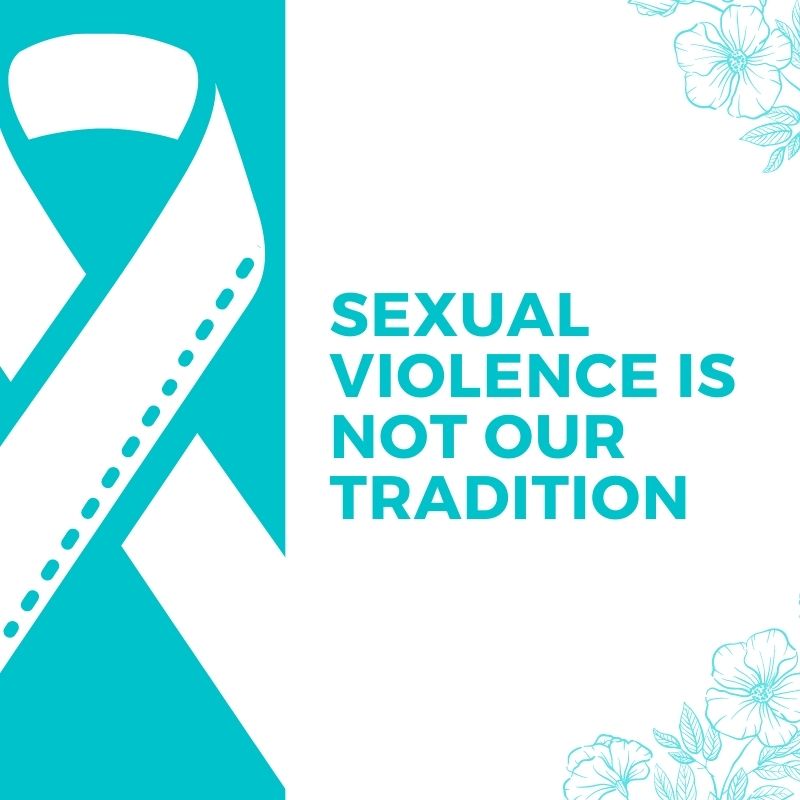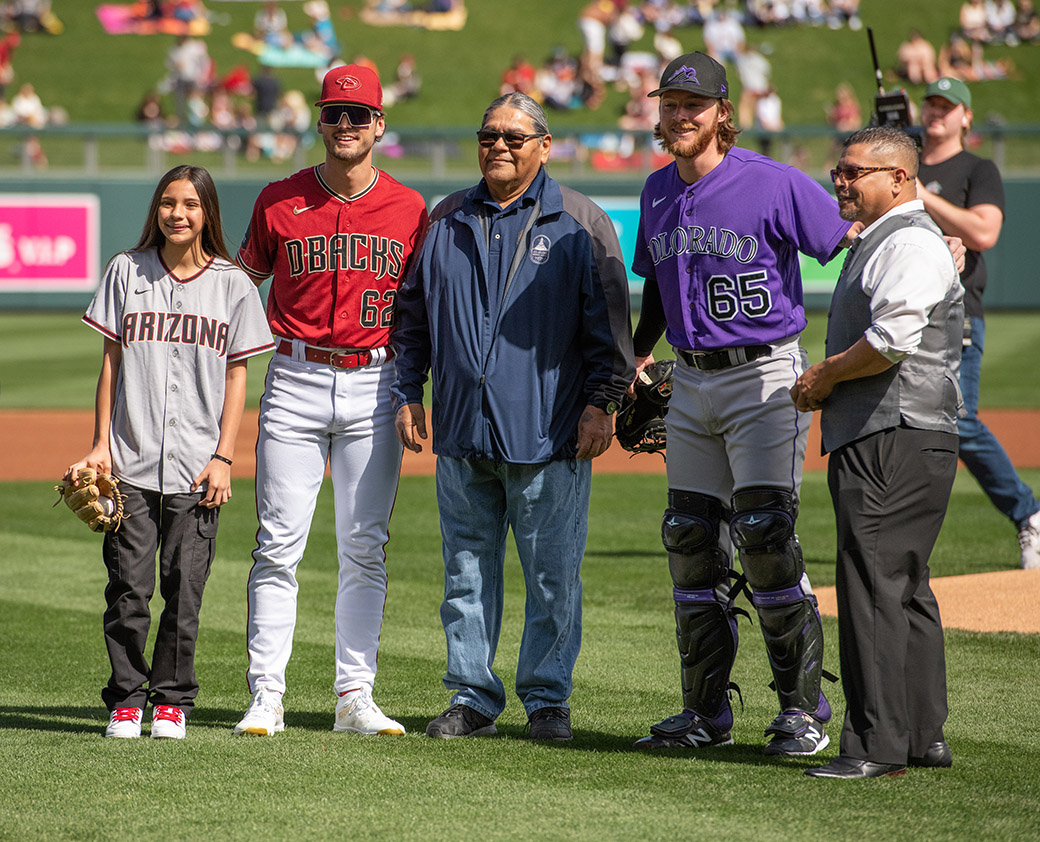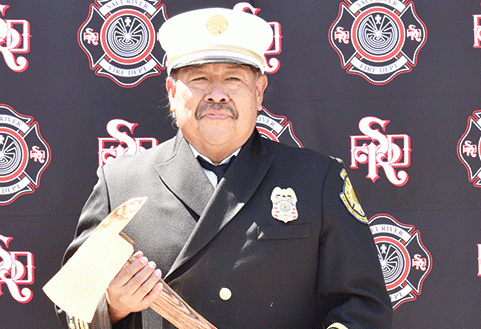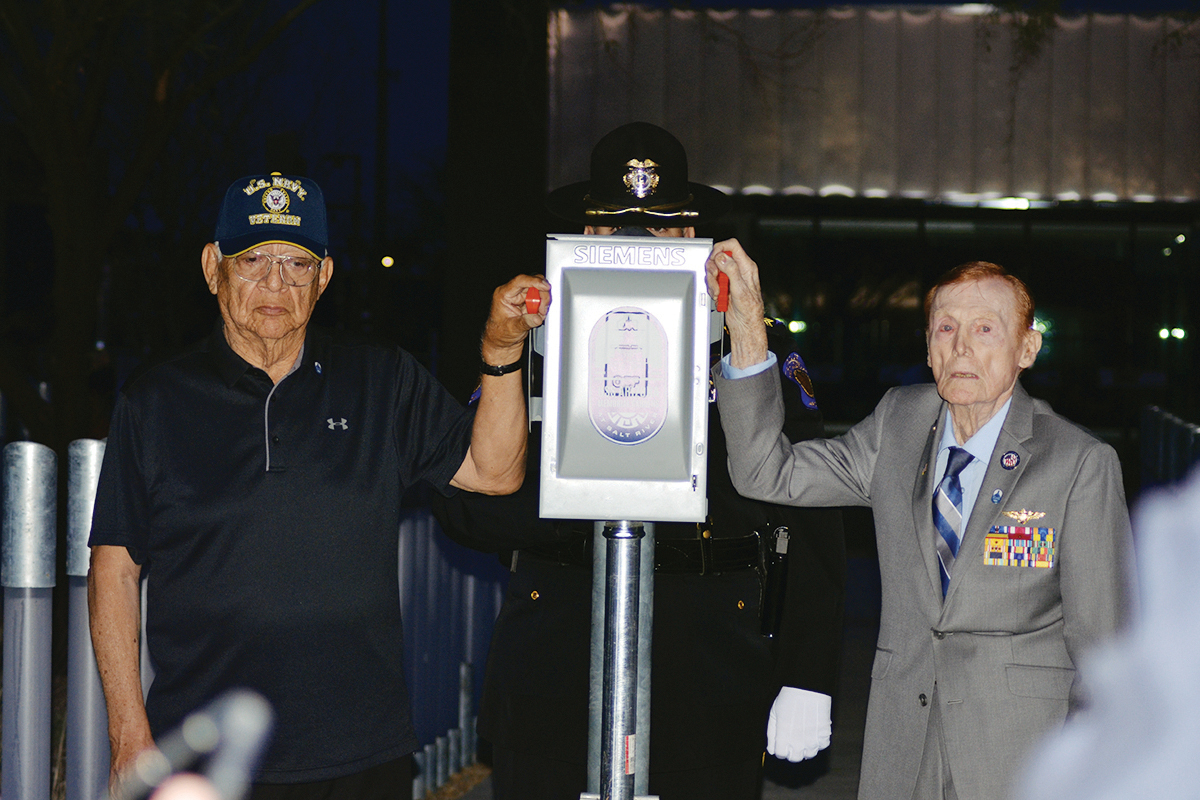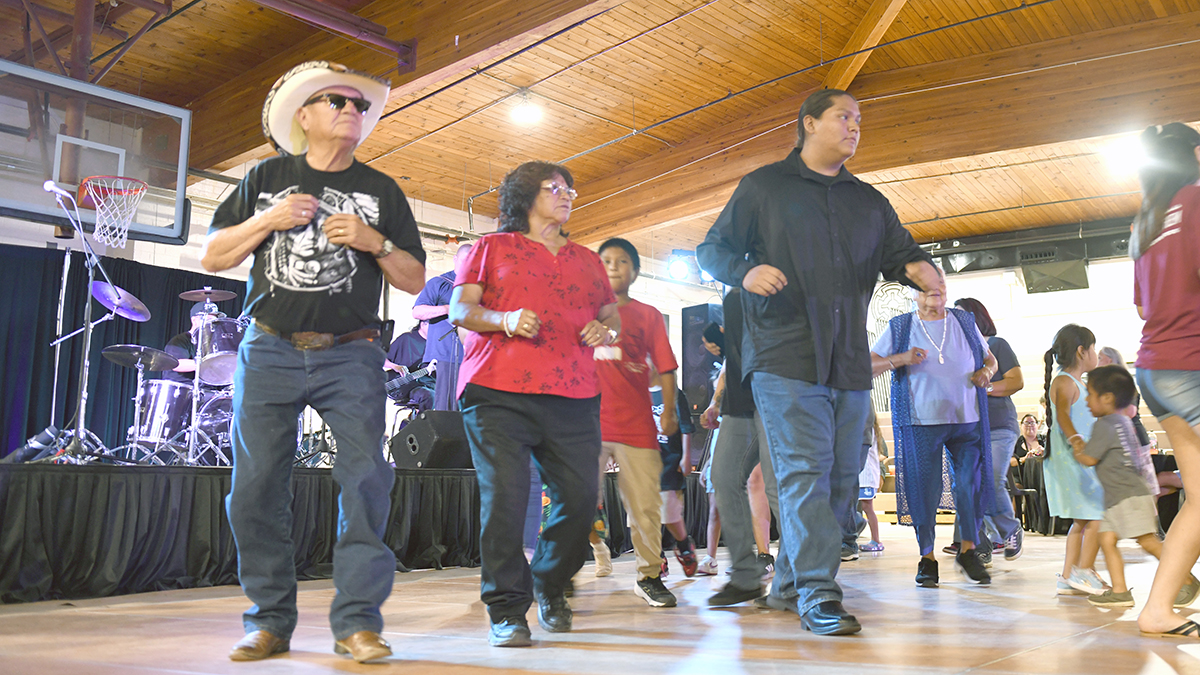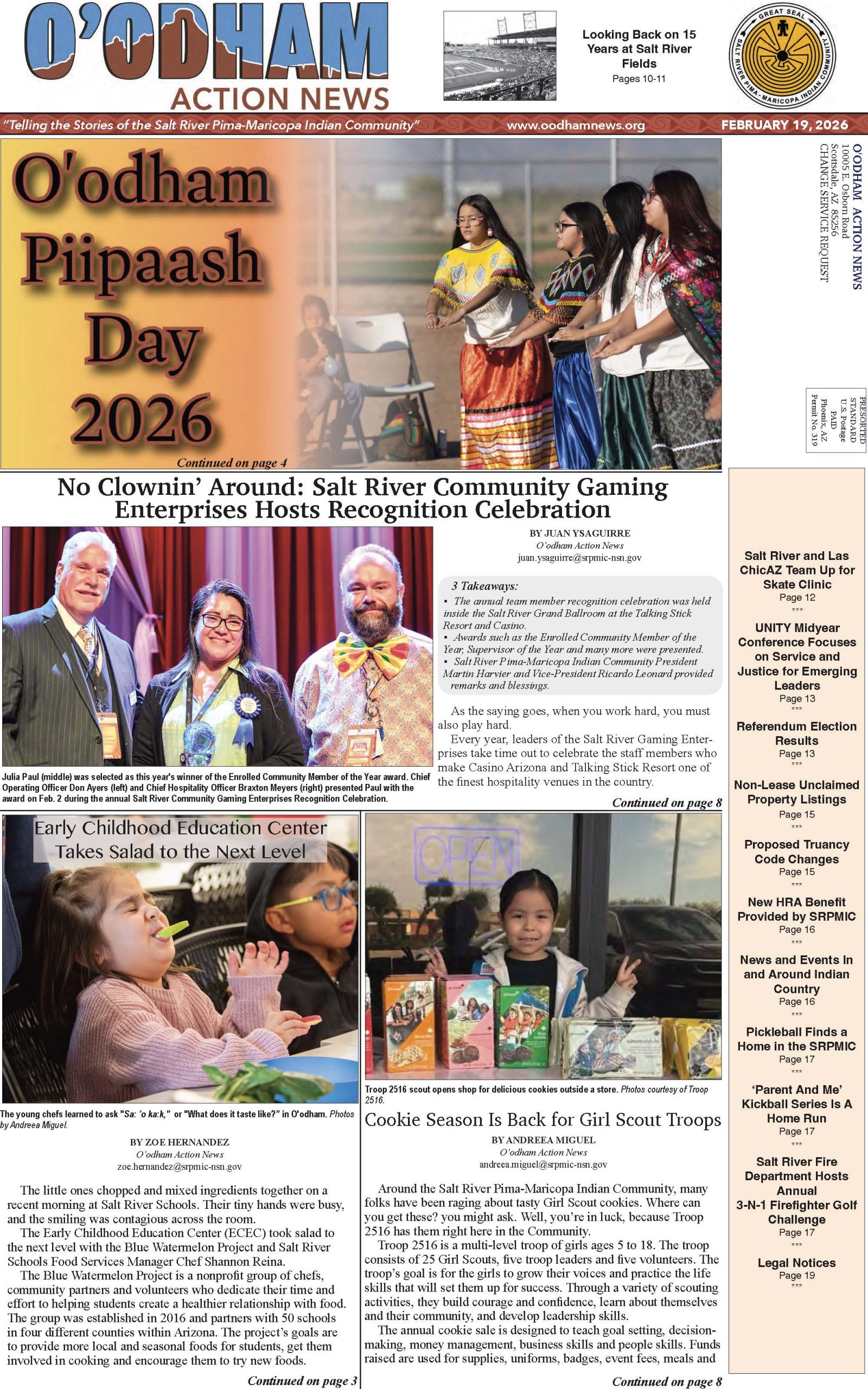VIEWS: 1665
May 15, 2024SRPMIC Hosts Webinar on Sexual Violence in Indian Country
As part of the “Education Tuesday” series during March and April, the Salt River Pima-Maricopa Indian Community Health and Human Services Prevention and Intervention Department hosted a “Sexual Violence in Indian Country” webinar on Tuesday, April 16.
Memory Dawn Long Chase served as the guest speaker during the presentation, with SRPMIC HHS Health Educator Vurlene Notsinneh-Bowekaty serving as the host. A member of the Standing Rock Sioux Tribe, Long Chase is a domestic violence response director for SWIWC, formerly known as the Southwest Indigenous Women’s Coalition.
During the presentation, the more than 65 attendees were informed about the significant extent of sexual violence in Indian Country. “Sex trafficking from colonial times is technically still going on today,” said Long Chase. She mentioned that the objectification of Indigenous women by reducing them to hypersexual caricatures and cartoonish imagery is part of sexual violence.
The hefty discussion warranted many check-ins within the webinar group to ensure all attendees were not triggered or severely affected by the presentation.
“Pocahontas was not her name; it was a nickname,” said Long Chase. “Disney inaccurately portrayed her life. She was the first ever MMIP (Missing/Murdered Indigenous Person). John Smith was not a good dude. I don’t think there was a grand love story there.”
Later, the presentation featured a video segment by NBC Left Field about sexual violence on the Tohono O’odham Nation. Caroline Antone was profiled in the video and detailed the sexual, physical, mental and spiritual abuse she experienced at home on the reservation when she was 5 years old. The frustration that she felt toward her parents for allowing the abuse to occur resulted in Antone spiraling out of control in her own life. “When I asked my parents why they allowed the abuse to happen to me, they just kept quiet,” said Antone in the video.
Staying silent and not reporting sexual abuse is another form of allowing the trauma to thrive.
“If you are Native, you are a survivor of something,” said Long Chase. She added, “There weren’t any programs for our ancestors. So, their way [to handle the situation] was to shrink and to make themselves invisible by not talking about it.”
As the presentation neared its end, Long Chase educated the group on residential schools and their negative impact in Indian Country. “I ask non-Native folks all the time to ask their parents and grandparents if their schools had graveyards,” Long Chase stated. She had the same opinion about the foster care system. “I call foster care programs ‘residential schools 2.0’ because there is rampant sexual violence in foster care,” she said.
Long Chase ended the presentation by answering questions from the group and describing the many different organizations and resources that can offer help to victims of sexual violence. “Our ancestors experienced sexual violence, and we still experience forms of it,” she said. “Telling your story is healing.”

